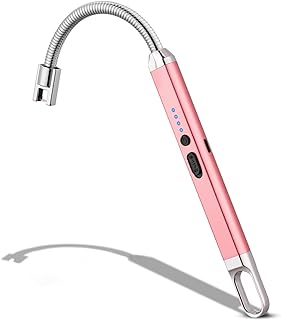Lighter Regulations: Legal Considerations and Restrictions
Lighter regulations vary widely depending on location and specific type of lighter. Here's a breakdown of key legal considerations and restrictions:
1. Safety Standards:
* US: The Consumer Product Safety Commission (CPSC) sets safety standards for lighters, including flammability, child-resistant features, and durability. Lighters failing to meet these standards are banned from sale.
* EU: The European Union has similar safety standards for lighters.
* Other countries: Many countries have their own specific safety regulations for lighters.
2. Age Restrictions:
* US: There are no federal age restrictions for lighter purchase in the US. However, some states have implemented local restrictions.
* EU: The European Union has a minimum age of 18 years for purchasing lighters.
* Other countries: Age restrictions on lighter purchase vary widely, with some countries having strict age restrictions and others having none.
3. Labeling and Packaging:
* US: Labeling requirements for lighters include warnings about fire hazards, safe use instructions, and contact information for the manufacturer.
* EU: The European Union has similar labeling requirements for lighters, including warnings about fire hazards and child safety information.
* Other countries: Specific labeling requirements for lighters vary from country to country.
4. Environmental Regulations:
* US: The EPA regulates lighter fluid, a flammable liquid that can contribute to air pollution.
* EU: The European Union has regulations in place for hazardous substances in lighters and their components.
* Other countries: Many countries have regulations regarding the use of specific chemicals in lighters, particularly those with environmental impact.
5. Restrictions on Types of Lighters:
* US: There are no specific regulations on types of lighters, except for the CPSC's safety standards.
* EU: The EU has restrictions on certain types of lighters, such as those that can easily be refilled, and encourages the use of safer lighter designs.
* Other countries: Some countries have strict regulations on specific types of lighters, such as banning the sale of refillable lighters.
6. Import and Export Regulations:
* US: The US Customs and Border Protection (CBP) may inspect imported lighters for compliance with safety regulations and other legal requirements.
* EU: The EU has strict regulations regarding the import and export of lighters, requiring compliance with EU safety standards and labeling requirements.
* Other countries: Import and export regulations for lighters can vary greatly depending on the country, with some countries having more stringent restrictions than others.
7. Local Ordinances:
* US: Some cities and counties have local ordinances prohibiting the use of lighters in certain public spaces, such as parks and buildings.
* Other countries: Many countries have local ordinances regulating the use of lighters in public spaces, such as banning smoking in certain areas or restricting the use of lighters in public buildings.
Important Considerations:
* Research specific laws: It's crucial to research the specific laws and regulations in your area, as they can vary considerably.
* Manufacturer compliance: Lighter manufacturers are responsible for ensuring their products comply with all applicable regulations.
* Consumer responsibility: Consumers should be aware of lighter safety risks and use lighters responsibly.
Disclaimer: This information is intended for general knowledge and informational purposes only and should not be considered legal advice. Always consult with a qualified legal professional for any specific legal advice.


